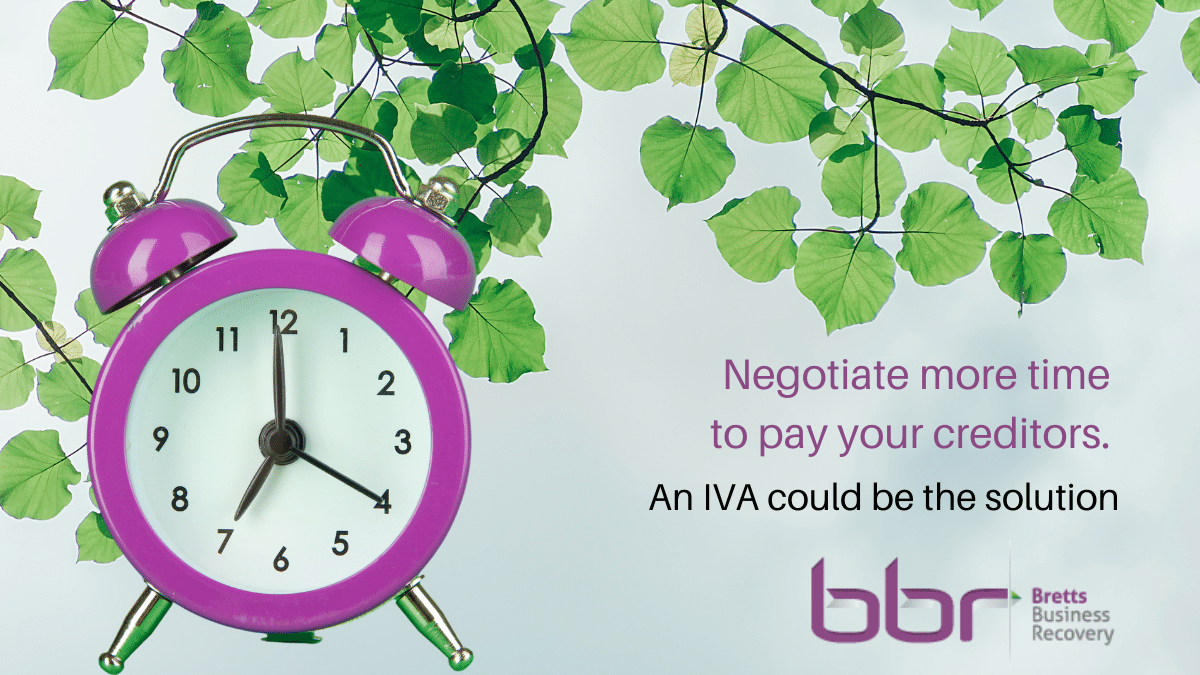Individual Voluntary Arrangements

An alternative to Bankruptcy, an Individual Voluntary Arrangement (IVA) is a formal and legally binding agreement between you (as a debtor) and your unsecured creditors (people you owe money to) in which you agree to pay back all or part of your debt over a period of time.
Once agreed by the requisite majority, your creditors may not change the Arrangement or take any additional action against you for recovery of the outstanding debt.
How does it work
An IVA must be administered by an insolvency practitioner who will help you to work out a repayment plan and deal with your creditors throughout the life of the IVA.
The repayment plan may be based on a lump sum, monthly payments or a combination of both. An IVA based on regular contributions may last for up to 5 or 6 years.
The insolvency practitioner receives your payments and distributes them to the creditors. In many cases, the creditors will agree to a payment plan that does not cover the total amount of your debt by the end of the term – in which case you are not required to pay the rest.
Why should I consider an IVA?
Benefits of an IVA include:
- creditors often agree to an arrangement where you may only pay part of the debt
- it is legally binding – which means that creditors cannot take additional action against you to recover the debt more quickly
- you know what your repayments will be over a fixed time period.
If you run a business, you may continue to trade while in an IVA.
You may continue as a company director.
Is an IVA right for me?
An IVA might be the right option for you if:
- the total debt is over £10,000 – (the costs of an IVA may mean an IVA is not viable for a smaller total debt)
- you owe money to more than one creditor
- you don’t want to deal with your creditors directly
- you have enough money to make IVA payments every month or are expecting a windfall during the payment period.
What are the risks?
An IVA can be flexible to suit your needs, but it can be expensive and failure to comply with the terms of an IVA may result in you being made bankrupt.
You should also consider the risks involved, such as, whether:
- you can afford to pay a set amount every month for 5 or 6 years – remember, it’s a legal binding agreement
- your job may be at risk – accountants, lawyers and people that work in financial services may have difficulty retaining their employment if entering an IVA.
- you get support for mortgage interest (SMI) – you may no longer be entitled to this support
- if you own a home and have equity in it, you might have to re-mortgage or event sell it towards the end of the IVA to release your share of the equity to your creditors.
- you own a car, or other expensive assets – these may have to be sold.
- you have savings or receive an inheritance or lump sum from a pension – these will be considered as an asset that must be made available for your IVA creditors.
You receive pension payments – that may be factored in when calculating your available income.
Other options
If this doesn’t sound right to you, there are other ways to deal with personal debt. See our website for more details on:
- Bankruptcy – you can make an application for bankruptcy yourself or, if you owe over £5,000, creditors can ask a court to make you bankrupt. Your assets and income are used to pay off the debt. The fees to enter bankruptcy are not as high as an IVA but the longer-term effects on your credit rating, lifestyle and financial wellbeing may be more severe.
- Debt relief orders – a low cost option where the debt is less than £20,000 and there are no assets and no prospect of the situation improving – the debt is frozen for 12 months.
Bretts Business Recovery specialises in helping people and businesses in financial distress. It is very important to take professional advice from a qualified insolvency practitioner before reaching any, potentially life changing, decision.
We can provide free advice to help you consider all options. Contact us to arrange a no-obligation consultation.